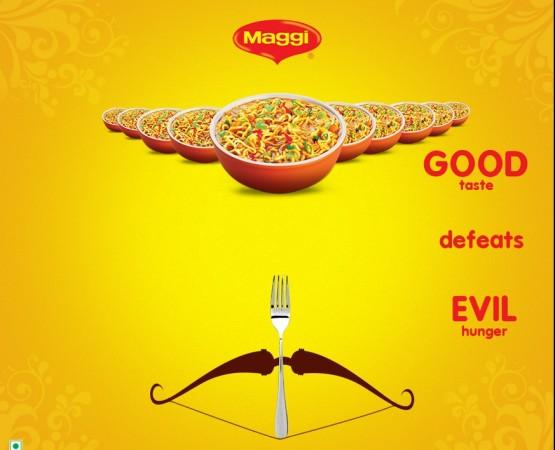
India's food safety watchdog on Friday ordered all the nine Maggi noodle variants to be "withdrawn and recalled" by Nestle and stop its further production and exports as some samples were found to be "unsafe and hazardous" for human consumption.
The Food Safety and Standard Authority of India (FSSAI) has also asked the company to show-cause within 15 days as to why the approval to the firm for these nine variants of "instant noodles with tastemaker" given on July 4, 2013 should not be withdrawn.
Nestle was also ordered to recall another product "Maggi oats masala noodles with tastemaker" for which the watchdog said neither had a safety-cum-risk assessment been undertaken nor had the authority granted product approval.
The order was issued after the company representatives were given a hearing on Thursday at the office of the authority to seek their responses on what steps Nestle had taken to comply with the safety norms prescribed by the food safety authority.
The Nestle team was led by its global chief executive Paul Bulcke and Etienne Benet, managing director and chief executive of India operations. Earlier on Thursday, Nestle had said it had withdrawn Maggi noodles from shelves all over the country.
Nestle contended before the authorities that since their product contained two parts -- noodle and the tastemaker -- the samples ought to have been tested together and not separately. The authority rejected the contention.
According to the watchdog, the samples taken in Uttar Pradesh and tested in Kolkata had found lead at 17.2 parts per million (ppm), against the permissible level of 2.5 ppm. Similarly, in Delhi, Gujarat and Tamil Nadu, too, the tests had confirmed excess levels of the hazardous metal.
"Detection of lead in a food product as a heavy metal contaminant beyond permissible levels renders the food product unsafe and hazardous," it said. It also quoted the food safety watchdog of Ireland as saying it can trigger brain damage, paralysis, anemia and gastrointestinal symptoms.
The Indian food safety authority also made a comment regarding mono-sodium glutamate (MSG) in Maggi noodles.
"It has been noted with concern that the label of the said product specifically mentions thereon 'no added MSG' whereas the product is found to be containing mono-sodium glutamate," it said. "It defies common understanding as to why the company has to make this assertion when it is not required to do so.
"The apparent reason for using information on the label is driven by an undue commercial advantage or benefit to create an erroneous impression in the minds of consumers regarding the character of the product," the authority said.
In their representation, Nestle said this was done due to "lack of clarity" in the regulations and that it had followed the general industry practice.
On the issue of "Maggi oats masala noodles with tastemaker", the authority said while Nestle had applied for its product approval on August 17, 2014, some clarifications were sought for safety and risk assessment.
"The company did not respond to the clarifications within the prescribed time, and as such the application already stands ordered to be closed being non-responsive." It said if the firm had resorted to this practice in other products, it must withdra them and intimate the watchdog in 24 hours.
The company said the product was launched at a time when the advisory dated May 11, 2013 was under stay granted a court.

















